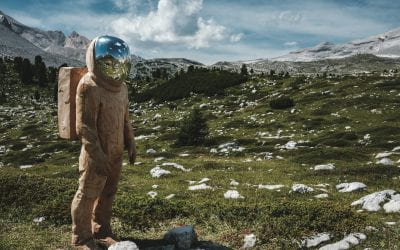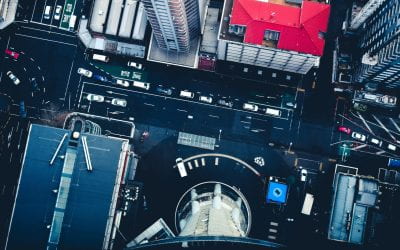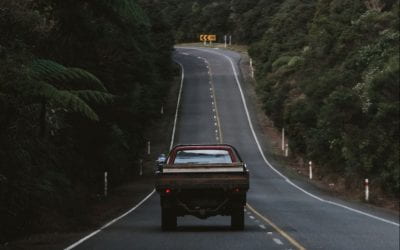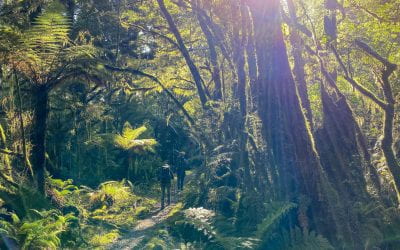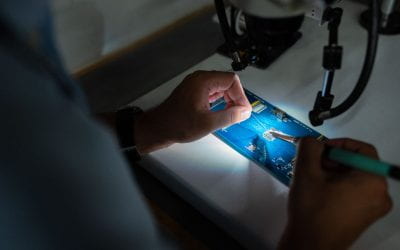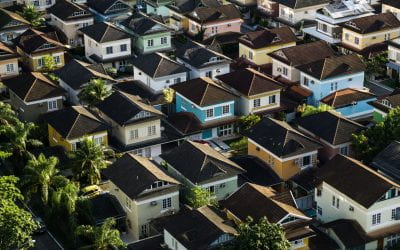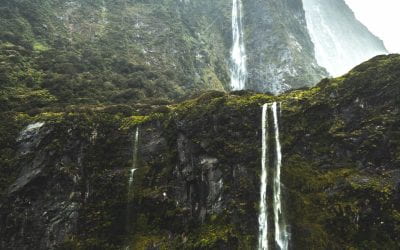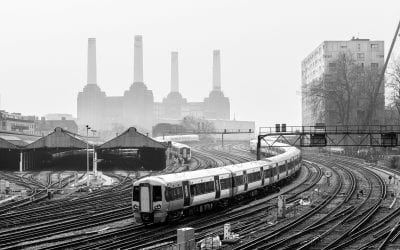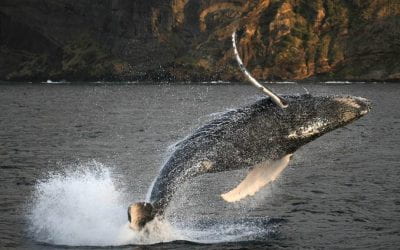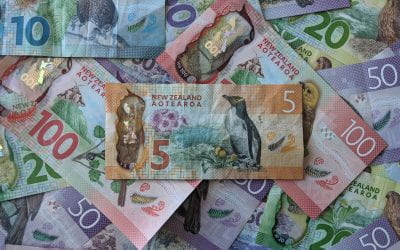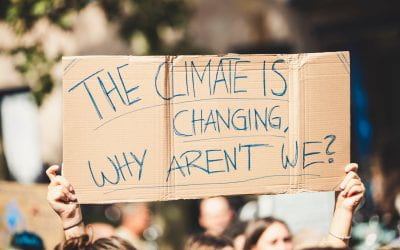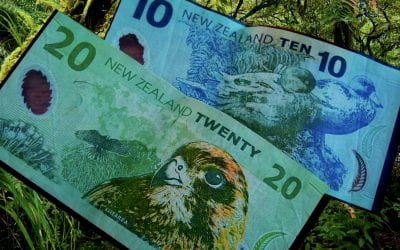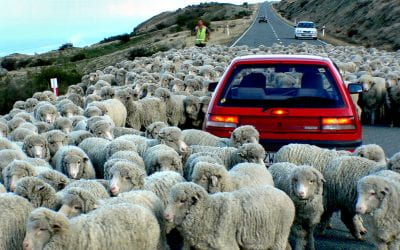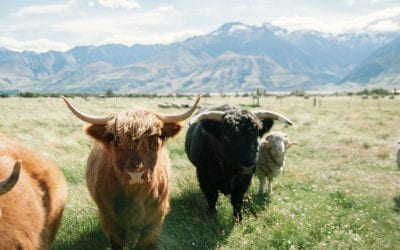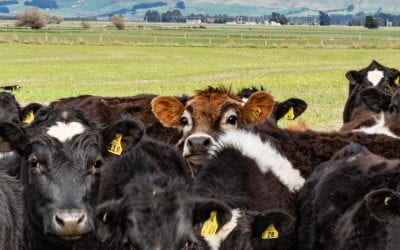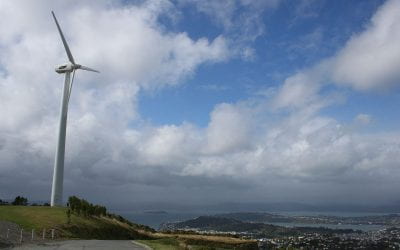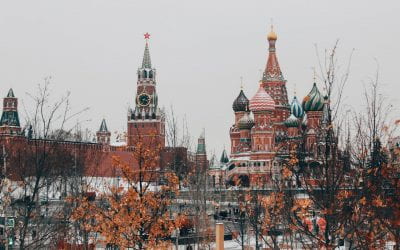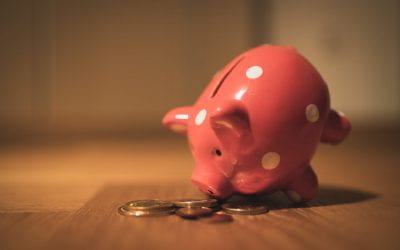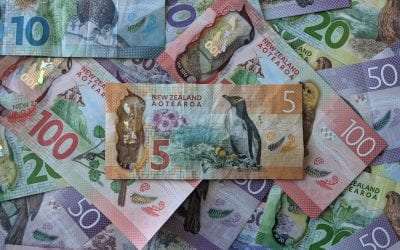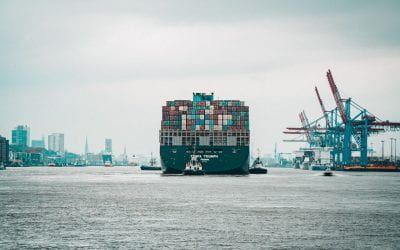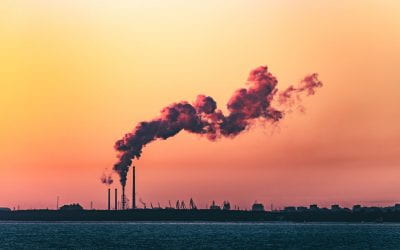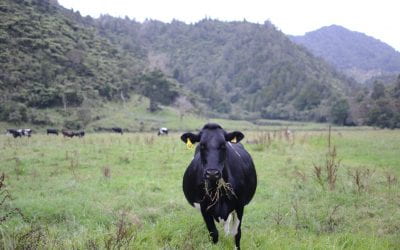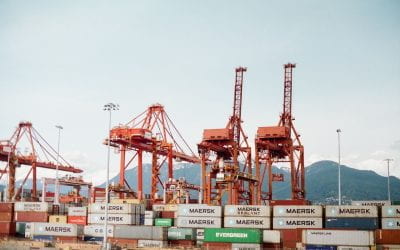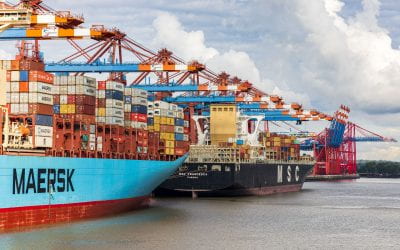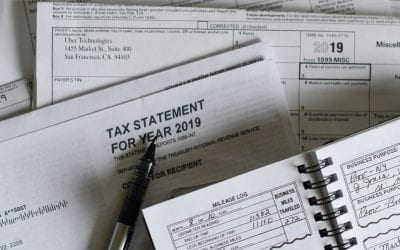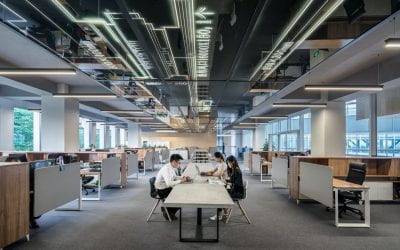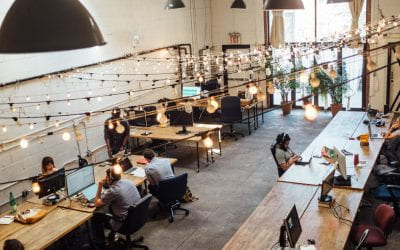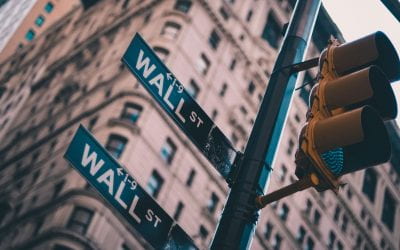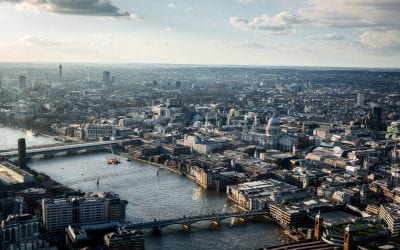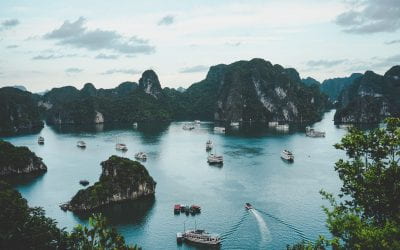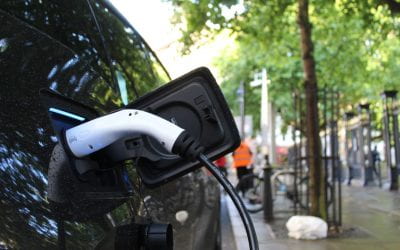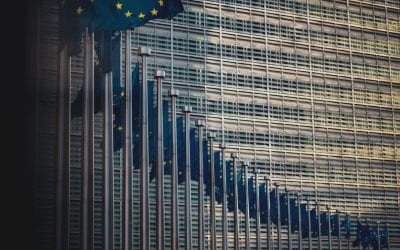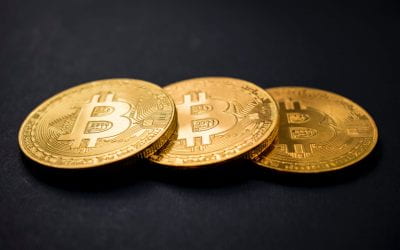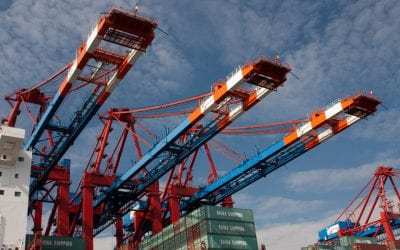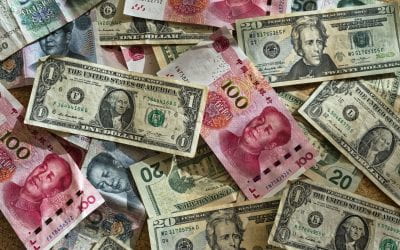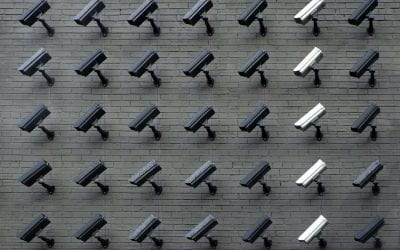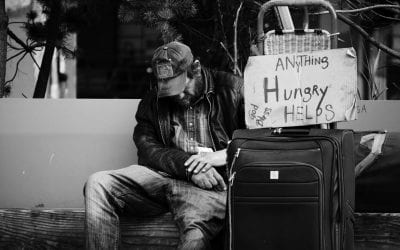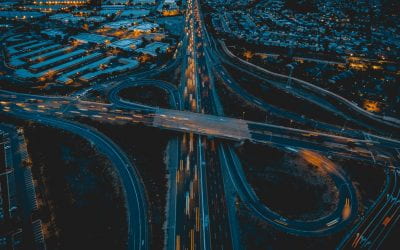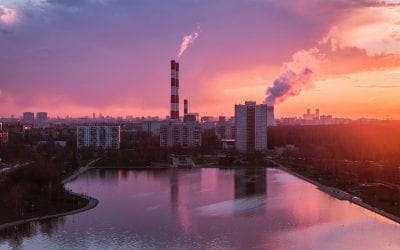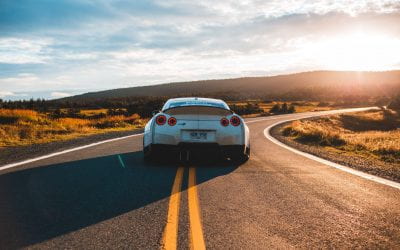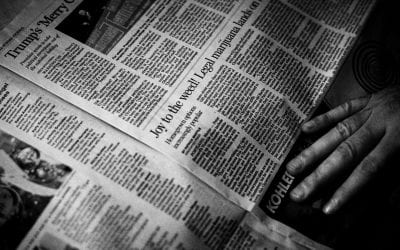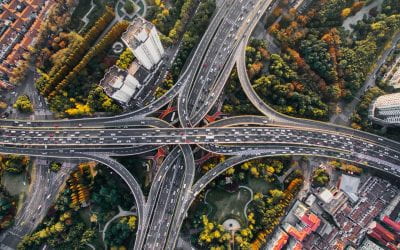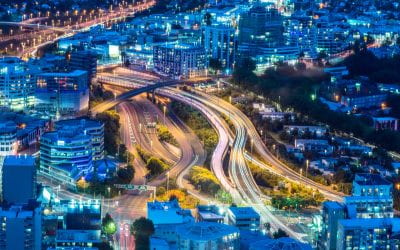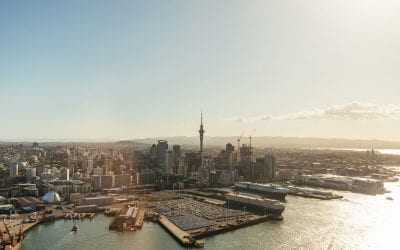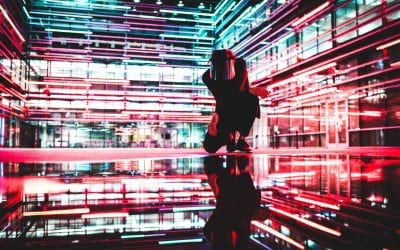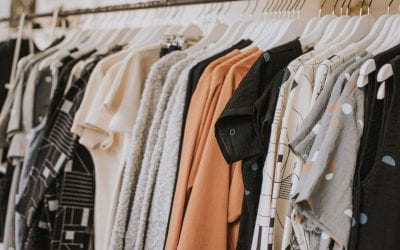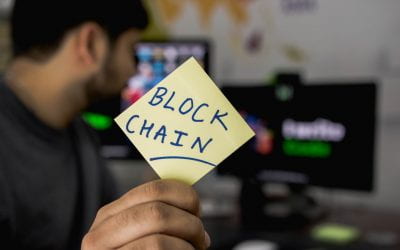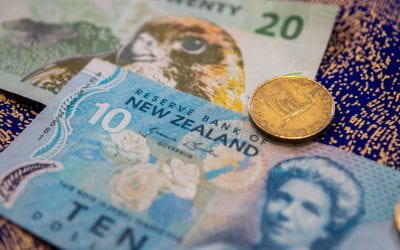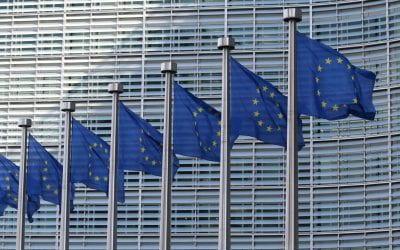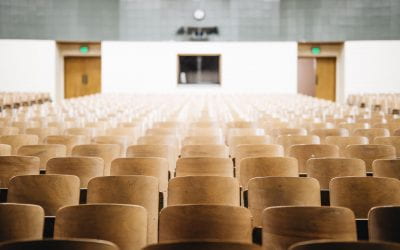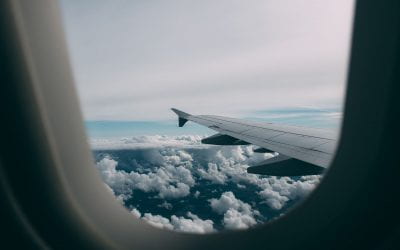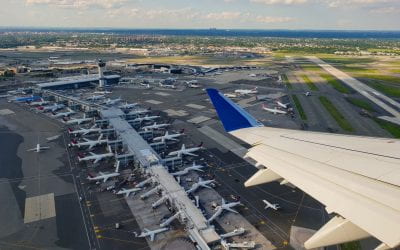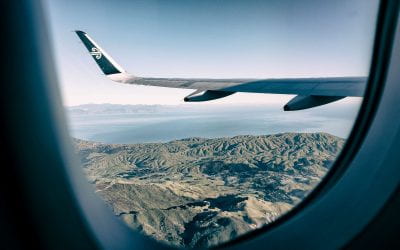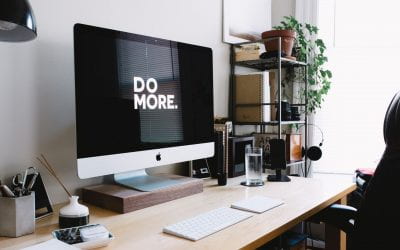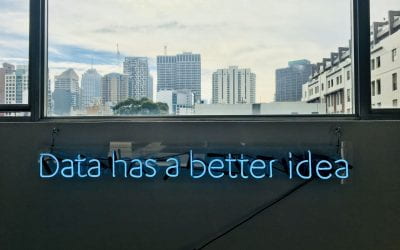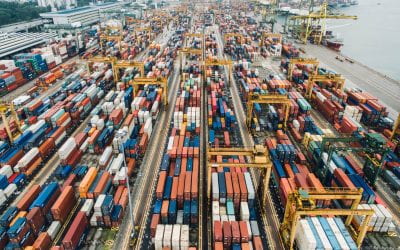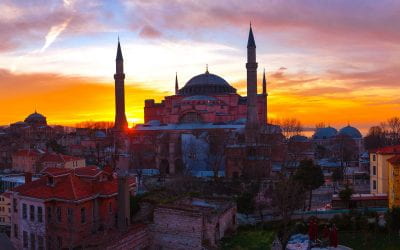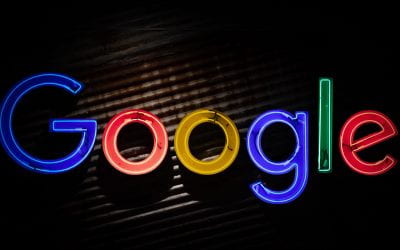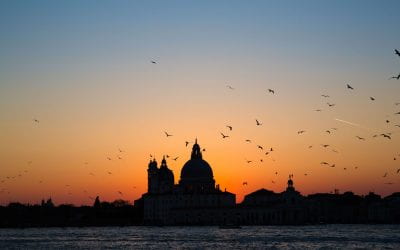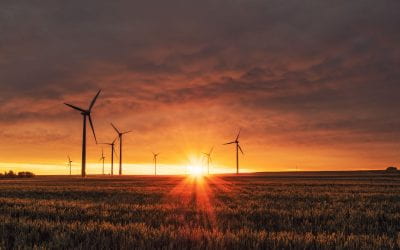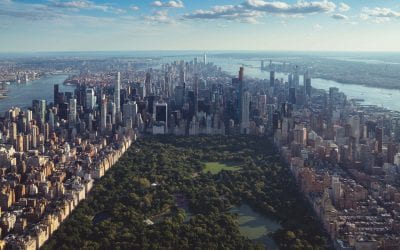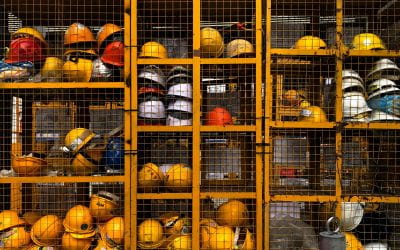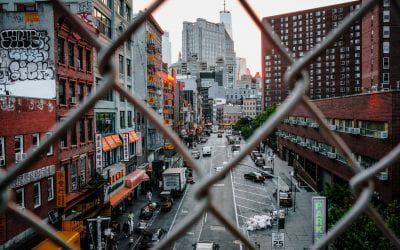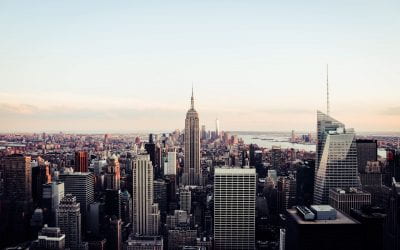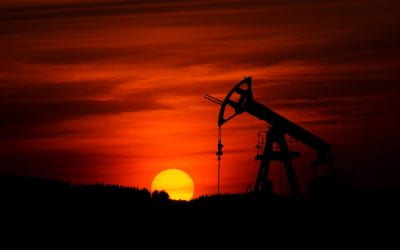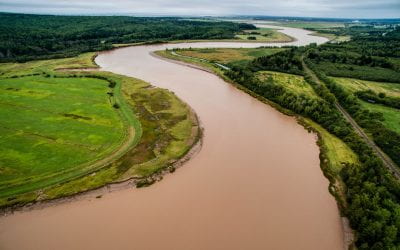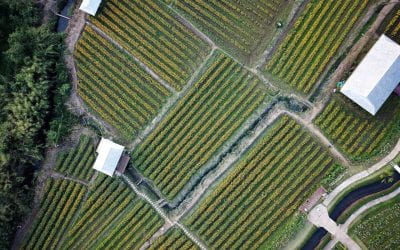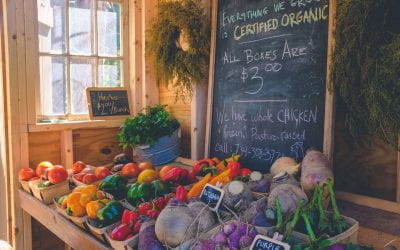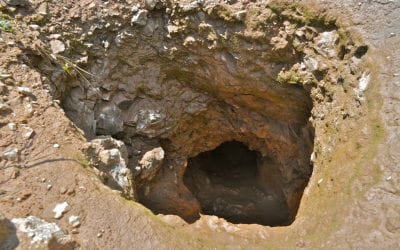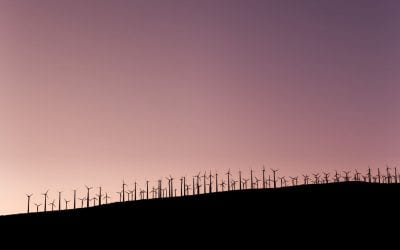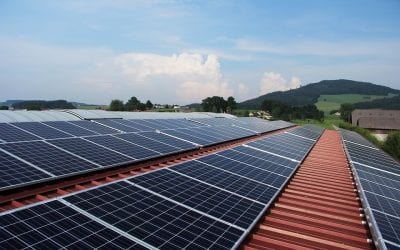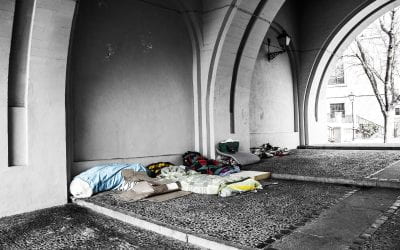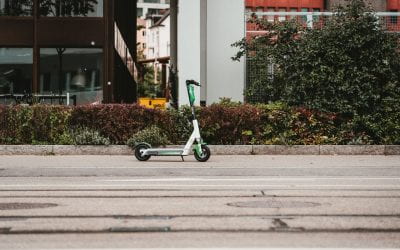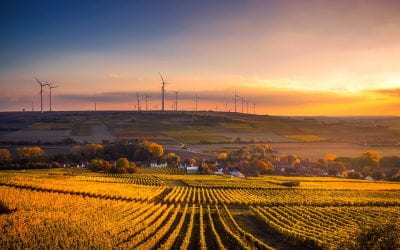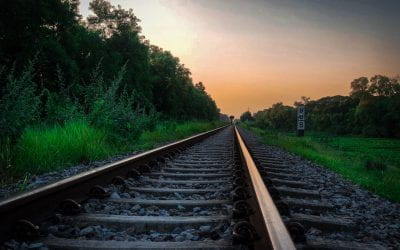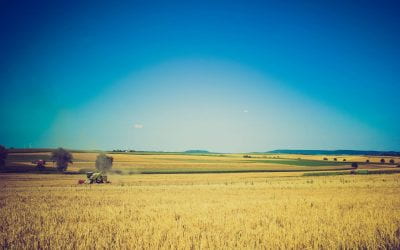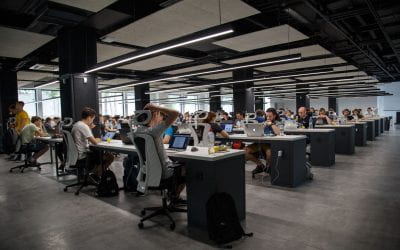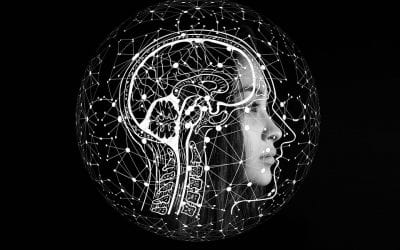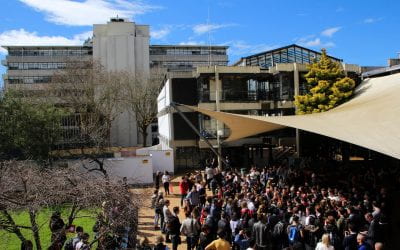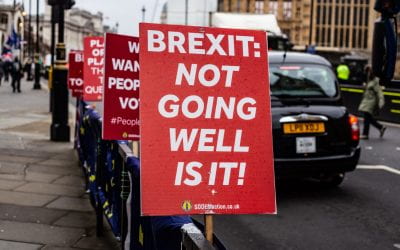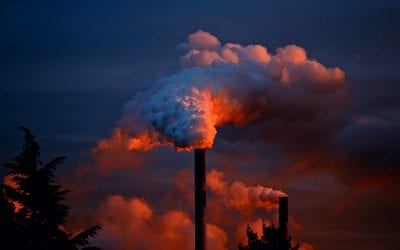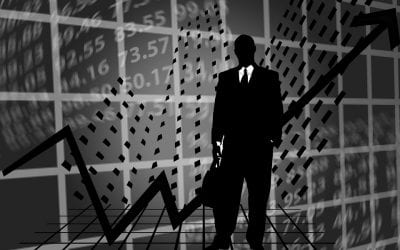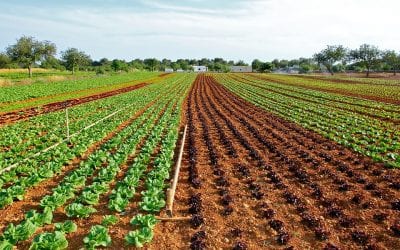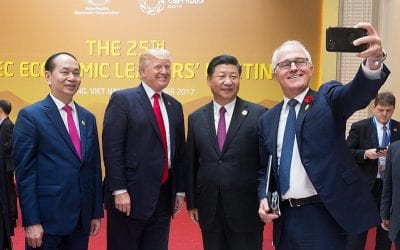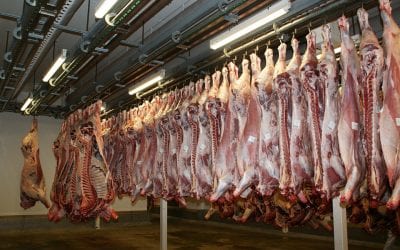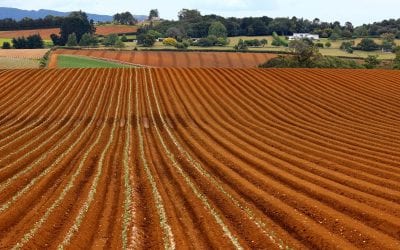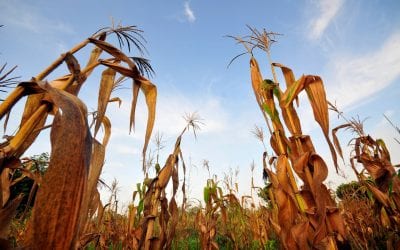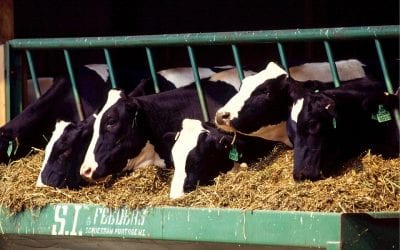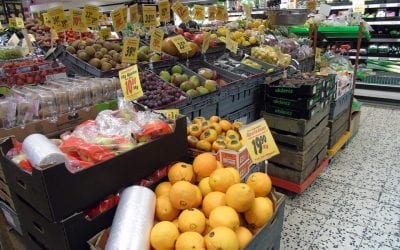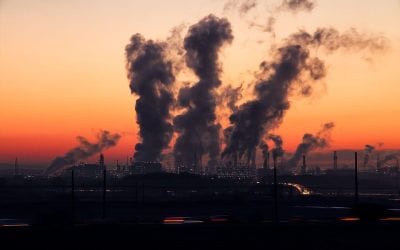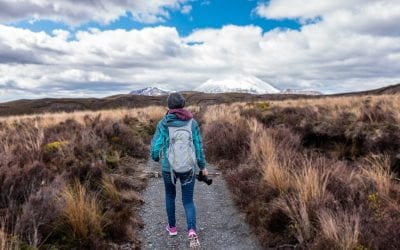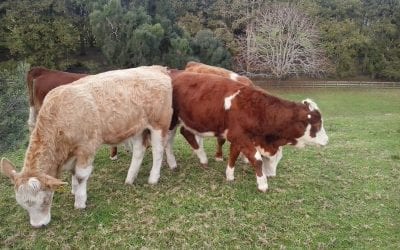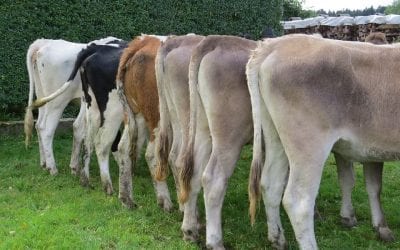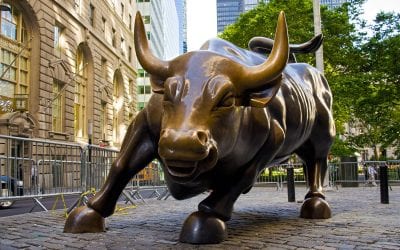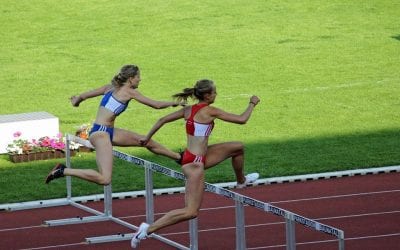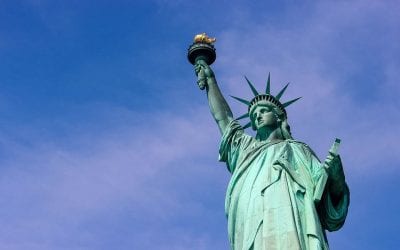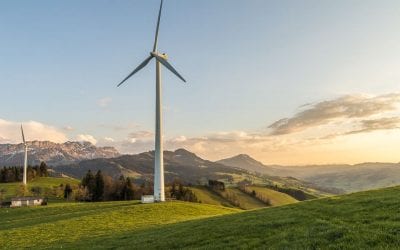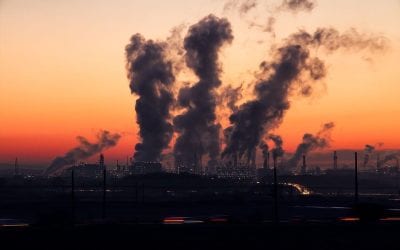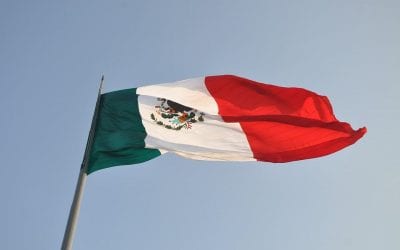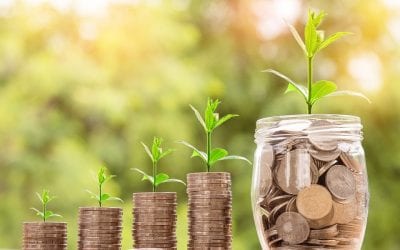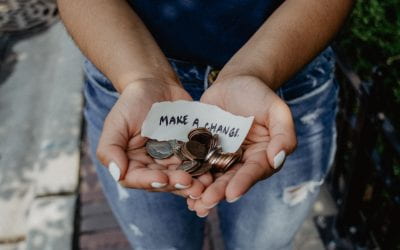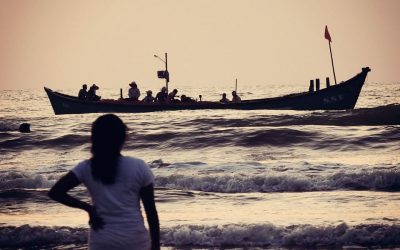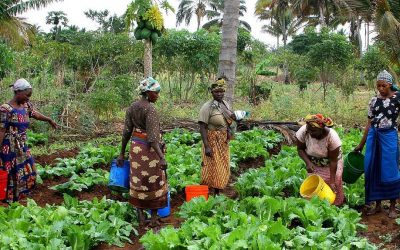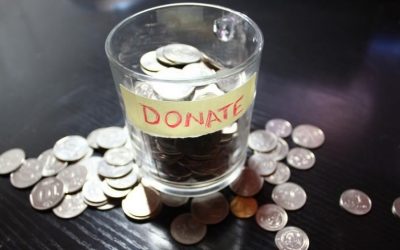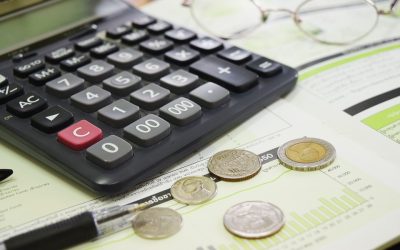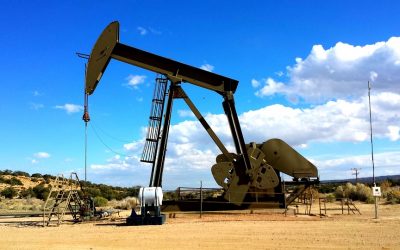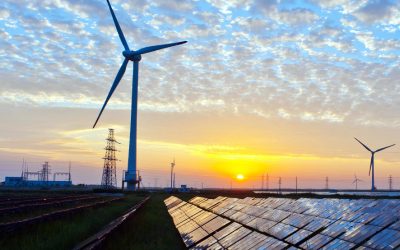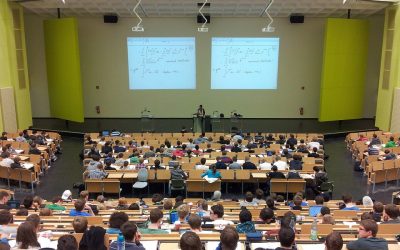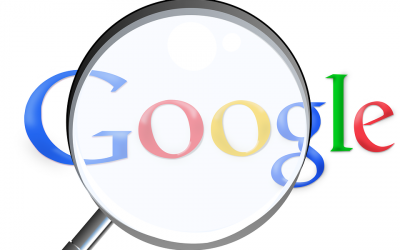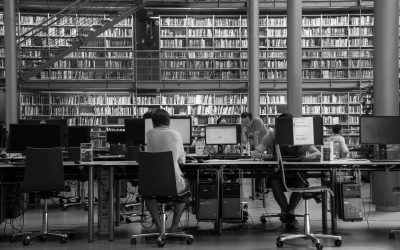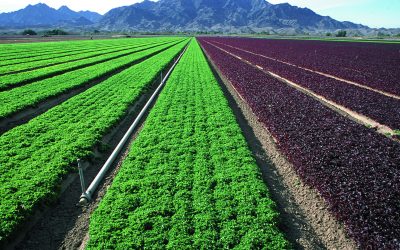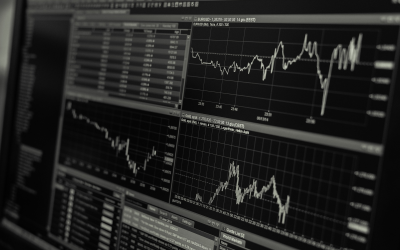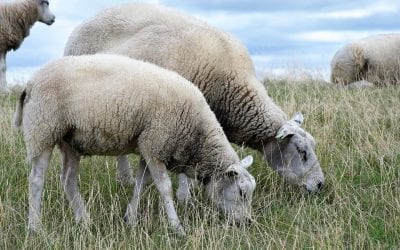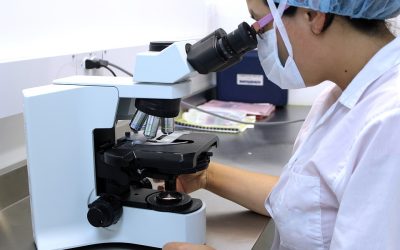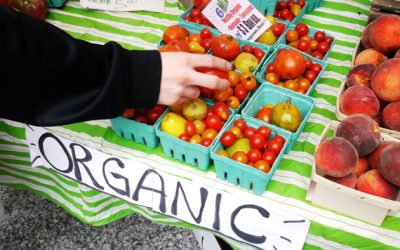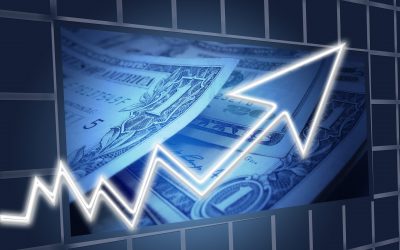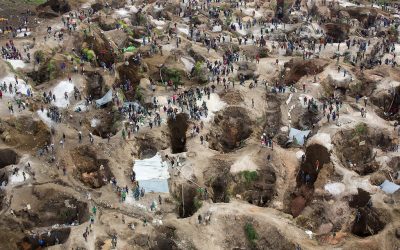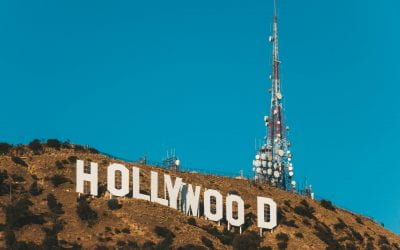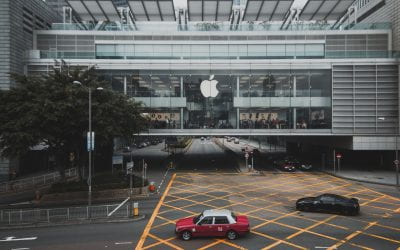Business & Economics
Sustain: How can we boost the use of climate-friendly technology?
Image used is as solar firmengebaude by ChristofferRiemer. Used under CC BY 3.0 In the face of climate change, people around the world have developed innovative new technologies to mitigate or adapt to its impacts. Despite their work however, adoption has proved more...
What’s the truth behind sustainable seafood claims?
Many seafood products sold in New Zealand make environmental claims, but new research shows most of them are too ambiguous and may serve as greenwashing.
Sustain: How can we tackle income inequality and environmental degradation?
On 13th September, Ngā Ara Whetū co-hosted a symposium on the challenges of inequality and environmental degradation with Juncture: Dialogues on Inclusive Capitalism, a research centre based in the Business School at the University of Auckland.
Is rooftop solar the solution to New Zealand’s energy woes?
By Stephen Poletti, University of Auckland, Waipapa Taumata Rau; Bruce Mountain, Victoria University (Melbourne); Geoff Bertram, Te Herenga Waka — Victoria University of Wellington. Photo used is Solar on Metal Roof by Wikideas1, used under CC0 1.0 Universal. ...
Sustain: What role can seaweed farming play in the fight against climate change?
AgriSea CEO Clare Bradley and Tane Bradley (AgriSea CIO) inspect a seaweed harvest on a New Zealand beach. ©AgriSea. With increasing interest in aquaculture as an alternative to land-based agriculture, Dr Pauline Herbst speaks to Prof Andrew Jeffs, from the Institute...
Could one small step for supply chains mean one giant leap toward sustainable space exploration?
Without proactive leadership on environmental sustainability, the New Zealand space industry risks losing competitive advantage in a global space market with increasingly environmentally conscious customers. Shedding light on supply chains is the first step.
What are donor-advised funds and how are they turning the US culture wars into charity?
DAFs channel huge amounts of cash to ‘culture war’ groups – anonymously. Why do people get tax breaks for using them?
Is Uber-style surge pricing the answer to Auckland’s congestion nightmare?
Can Uber-style surge pricing ease Auckland’s traffic chaos and save millions in congestion costs? Tim Hazledine from the University of Auckland explains.
Will the Clean Car Discount’s Reversal Shift the Gear on SUV and Ute Sales in NZ?
Explore the potential impact of New Zealand’s Clean Car Discount reversal on SUV and ute sales, road safety, and emissions reduction. Insights from Timothy Welch, University of Auckland.
Can tourism thrive without the environment picking up the bill?
Discover the dilemmas of New Zealand’s resurging tourism industry, balancing economic benefits with environmental and cultural preservation for a sustainable future.
Is It Time for New Zealand to Join the Global Right-to-Repair Movement?
Explore the call for a “Right to Repair” in New Zealand to combat disposable products, software locks, and copyright hurdles affecting consumers and the environment.
NZ’s always-on culture has stretched the 8-hour workday – should the law contain a right to disconnect?
Discover the evolving landscape of work-life balance in New Zealand, as the “right to disconnect” gains prominence in the digital era.
Can an Empty House Tax Help Boost Affordable Housing in New Zealand?
Explore the debate over taxing empty homes in New Zealand amid a housing crisis. Discover how an empty house tax could address housing affordability and generate revenue for the government.
Can ‘Degrowth’ Economics Save our Ecosystems?
Unveil the potential inevitability of ‘degrowth’ economics from an ecologist’s perspective, addressing ecological overshoot and sustainable futures.
How can K-Pop Fans Navigate the Complexities of Cultural Appropriation vs. Appreciation?
Uncover how international K-Pop fans negotiate cultural appreciation and appropriation, exploring strategies and dilemmas in consuming Korean pop culture.
How Will New Zealand Embrace the Digital Money Revolution?
New Zealand prepares for cryptocurrency integration, addressing regulation, risks, and benefits, aiming for a balanced and innovative financial future.
Are we two weeks away from the worst recession since the 1930s?
How banking executives prepare for chaos and financial disorder that might be just around the corner.
From Stagnation to Inspiration: How can companies better drive innovation?
Boards of directors play a crucial role in driving innovation, fostering collaboration, and aligning organizational structures for success, writes writes Rod McNaughton.
How shall we reform our hump-shaped tax system?
Should New Zealand implement a flat income tax rate of 25% for all, including the top 2%? Economist Tim Hazledine thinks so.
Proving the wealthiest New Zealanders pay low tax rates is a good start – but will they pay more tax?
The just released Inland Revenue study of the tax rates paid by the wealthiest New Zealanders should put to rest the notion we have a progressive tax system. We don’t. Professor of Law Craig Elliffe breaks down the latest news in tax policy.
Can NZ step up and address Earth system decline?
The Government of Aotearoa New Zealand has a unique opportunity to demonstrate leadership and action by changing its laws to conform with the laws of nature, writes Klaus Bosselmann. Can NZ step up and help lead?
What would a Green Recovery from COVID-19 look like for Aotearoa New Zealand?
To arrest economic downturn, many governments have responded with massive fiscal packages to boost the economy, maintain employment, and stabilise core industries. However, there is deep concern that these economic responses will undermine the goals outlined in the Paris Climate Accords and cause a surge in greenhouse gas emissions.
Why do social ties matter to climate politics?
Policy-makers frequently fail to communicate scientific knowledge about climate change effectively, with the result that targeted groups often reject potentially useful advice. Our research addressed New Zealand dairy farmers’ perceptions of climate conditions and their perceptions of climate science.
From farming to fermentation: Could New Zealand ‘brew up’ new foods to reduce agricultural emissions?
Addressing the problem of New Zealand’s agricultural emissions has mainly focused on technical fixes aimed at reducing methane and nitrous oxide produced by livestock and fertiliser and relying on voluntary agreements with the industry. But these measures may not result in substantial emissions reductions any time soon.
The cow in the room… A problem of production or consumption?
Techno-scientific solutions have been thrown at the problem of farm-based greenhouse gas emissions. It’s an economy in and of itself.
What should New Zealand do to commit fully to tackling climate change?
We need to invest in clean technologies and circular economies to build a sustainable, diversified economy. And that will also lessen our dependence on carbon-emitting industries, say leading Auckland academics.
Is Russia’s invasion the end point for Putin’s kleptocracy?
Putin is the product of a corrupt economic system that we must now reform, writes Mary Kaldor.
Will an income insurance scheme work in New Zealand?
Susan St John responds to the newly-announced income insurance scheme with some suggestions on how to tweak and improve what we already have.
What role do banks play in the housing crisis?
If banks’ lending behaviour is found to have contributed to New Zealand’s housing quagmire, then banks must be held to account and share the pain when the bubble inevitably bursts, writes the University of Auckland’s Michael Rehm.
With inflation on the rise, what can be done to support low-income families?
Inflation is raising prices and reducing real wages – what should be done to support NZ’s low-income households?
What’s causing inflation? 🔊
Since the COVID pandemic, the United States and other countries have faced challenges in terms of economic recovery. This has resulted in issues such as supply chain disruptions and what has been reported as high rates of inflation.
Why did the world’s supply chain fail and how can we make it more resilient? 🔊
The COVID pandemic has exposed the weaknesses of the world’s supply chain, with its emphasis on lowering costs without regard to the resilience of disruptions.
Gaining steam or just hot air: What is the role of hydrogen in decarbonising New Zealand’s economy?
To make hydrogen competitive with fossil fuels, the Government would need to use a combination of investment, incentivisation and regulation but these benefits should only apply to certified green hydrogen, produced with renewable energy.
Do we need a right to repair?
Legislative changes must be made quickly to avoid New Zealand becoming a dumping ground for products unable to be sold overseas.
How do rich politicians avoid paying tax?
IRS records reveal how Gov. Jim Justice, Gov. Jared Polis, former Education Secretary Betsy DeVos and other wealthy political figures slashed their taxes using strategies unavailable to most of their constituents.
What is the hidden cost of New Zealand’s ‘food basket to the world’ role?
New Zealand’s reliance on pastoral farming as the backbone of its agricultural economy has a hidden cost in the form of phosphate extraction, a non-renewable resource mined at a high cost to our Pacific neighbours and the Sahrawi people in Western Sahara.
What has happened to supply-chains?
As Covid-19 cases decline, capacity constraints and shortages should ease, spending on travel and entertainment should pick up, slowing demand for goods and taking some of the pressure off supply chains and delivery times.
Can we transform Facebook into a public good?
Facebook won’t let state oversight trump shareholder interest, so alternatives – based on common ownership and community control – are needed.
Who controls the global economy in this COVID world?
Low interest rates and COVID-19 mean governments, not central banks, now control the world’s key economic levers.
Pandora Papers: how do people avoid paying tax?
The Pandora Papers show how the tax industry uses ‘special purpose vehicles’ to avoid stamp duty – despite repeated legislation to prevent this.
What could a post-COVID workplace look like?
The collective experiences of workers pre and post-pandemic offer five lessons for organisations to reimagine workplaces and practices.
Why are global food prices higher today than for most of modern history?
Global food prices shot up nearly 33% in September 2021 compared with the same period the year before.
What are the causes behind Britain’s energy crisis?
Soaring gas prices have exposed longstanding vulnerabilities in Britain’s energy system. A radical overhaul is long overdue.
The future of work and COVID – be wary of the Emperor’s new clothes?
How will New Zealanders ‘work’ in 2040 and beyond? How do we make sense in the present day of the societal, economic and environmental pressures that will impact work in the future?
Covid: why are people so vaccine-hesitant? ▶
As Aotearoa rolls out its Covid vaccine response, although uptake is high, there remains a few who are either vaccine-hesitant or refuse to want the vaccine. Why are people so vaccine-hesitant?
Is COVID causing a rise in digital nomads?
Nomads have historically been seen as a threat, but several countries around the world are now actively seeking to attract this growing digital legion through new remote work visas.
What does a post-neoliberal future look like?
From taming Big Tech to competing with China, Western governments are abandoning free-market policies.
How can we get New Zealanders out of their cars?
To get New Zealanders out of their cars we’ll need to start charging the true cost of driving.
Is TikTok breaching your privacy?
TikTok is hugely popular. But its latest decision to capture unique digital copies of your face and voice is a cybersecurity threat to your identity and privacy.
Taxing the digital economy: what changes can be made? ▶
In this lecture, Craig Elliffe explains the problems with the existing international tax system and its inability to respond to challenges posed by digitalised companies.
Will an international tax on tech giants be enough?
Australia and New Zealand are signing up for an international tax on the tech giants — but will it be enough?
Will sustainable cities look like the places we know today?
A sustainable city could look like the ones we know today. It could look like the ones we see in science fiction movies, or it could look like something which none of us has yet dreamt.
What is the dark side of tourism?
We all know Covid-19 has had a major impact on tourism. Professor Andreas Neef says it’s a good time to have a rethink about the type of tourism the world needs.
How can we increase electric vehicle usage?
Wireless charging stations set in the pavement for vehicles to park over are closer than you think, for both cars and heavy transport vehicles.
Are banks days numbered?
The growth of crypto is confounding critics and forcing central banks like New Zealand’s Reserve Bank to investigate their own digital currencies.
Is natural gas really cheaper than renewable electricity?
The government wants us to phase out fossil fuels. Yet natural gas is much cheaper for households to buy per kWh than electricity. Why?
Regulating big tech: Are Facebook and Google too powerful? ▶
In this lecture, Matt Bartlett sets out the complicated landscape of Big Tech power, and whether it presents a threat to public power (governments, elections and democracy).
Why does the EU want to tax non-green imports?
The Commission is expected to unveil its proposal in a few weeks’ time, but some exporting countries of carbon-intensive products have already expressed their disappointment at a new form of European protectionism.
How environmentally friendly is cryptocurrency?
Bitcoin isn’t getting greener: four environmental myths about cryptocurrency debunked.
Is tax the ticking time bomb of our generation? ▶
Is tax the ticking time bomb of our generation? That is the focus of this lecture hosted by the University of Auckland Law School.
Is the bright-line test extension really just a capital gains tax by another name?
“If we want a fair and prosperous future, we need a tax system that helps to redress market inequalities.”
What can we learn from the 2008 New Zealand-China Free Trade Agreement?
New Zealand was the first developed country to commence FTA negotiations with China. In November 2004, New Zealand and China launched FTA negotiations and in April 2008, New Zealand became the first OECD country to successfully conclude FTA negotiations with China.
What can people in wealthy nations do to fix COVID vaccine ‘apartheid’?
Charitable donations from rich countries and individuals are welcome – but they won’t ensure fair vaccine distribution unless the drug-patenting system is reformed, too.
Is it time for a wealth tax on billionaires?
The US’s billionaires have amassed democracy-distorting concentrations of wealth and power as millions have been thrown into poverty, says Chuck Collins.
How big is the economy of authoritarian regimes?
Stefano Riela asks how big the economies are of authoritarian regimes.
An economic divide: What are the myths about poverty in the United States? 🔊
The COVID-19 pandemic in America has exposed distinct economic divides throughout the country. But much of the issue of poverty in the US is based on public images rather than empirical evidence.
What are the economics of happiness?
New Zealand has its own world expert on the economics of happiness. Professor Robert MacCulloch says the pandemic is an opportunity to show how we could do a lot better.
News ban: Can we regard Facebook as a public utility?
“We have been shocked by Facebook’s Australian news ban because we have been labouring under a misapprehension: We thought it was a public utility.”
Is slavery a problem in New Zealand?
International business expert Christina Stringer has lifted the lid on migrant workers facing serious exploitation in New Zealand.
Should social media companies be owned by the public? 🔊
Social media, as it exists currently, is an oligopoly, with a handful of private companies controlling the structure and use of the platforms which mediate our communication not only with one another but also with the public sphere.
How can we cut emissions from transport?
How to cut emissions from transport: ban fossil fuel cars, electrify transport and get people walking and cycling according to Robert McLachlan.
Is 2021 humanity’s make-or-break moment on climate change?
COVID-19 and climate change are two sides of the same coin. To overcome both we must confront their root cause: an economic system that is killing the planet.
Who is winning the race to develop the autonomous car? 🔊
The United States takes great pride in its history as a technology leader globally. However, in the race for the autonomous car, China appears to be winning. What is the current status of this race?
Why do housing prices soar despite a COVID recession?
Median housing prices across New Zealand increased by 19.8% year-on-year (YOY) in October 2020. It is one of the largest price surges in the world despite a global COVID recession.
Meal kit delivery services – Can they advance sustainable eating?
Regular meal subscription services such as My Food Bag and Hello Fresh market themselves as a convenient alternative to supermarket shopping to consumers with a large focus on sustainability. But is it actually transformational change or too little, too late.
How has COVID reshaped the New Zealand media landscape?
Closures, cuts, revival and rebirth: how COVID-19 reshaped the NZ media landscape in 2020.
What is COVID-19 trying to tell us about our future?
COVID-19’s message is clear: we need to move forward, quickly, into a very different future.
Can individuals control the monetisation of their data?
Tech giants rule the world, making billions of dollars from our personal data. Could the ordinary Googling individual get a share of that?
Replacing the RMA: What are the challenges of the new legislation?
Part two of this two-part series looks at some of the areas where there are concerns about the impact of the proposed new RMA plans.
Replacing the RMA: Will it be more of the same or something better?
This two-part series will look first at the demise of the RMA and its review before turning to what issues might arise in its replacement.
What will our future look like with AI? ▶
There’s been dramatic progress in learning skills, such as object recognition, translation and speech, and in difficult but uncomplicated tasks like playing chess, Go and video games.
Fast fashion: What are the hidden costs?
“The textile and clothing manufacturing industry comes with a heavy price including environmental pollution and the well-publicised issues around the income and working conditions for workers.”
Is the blockchain revolution coming?
The technology behind cryptocurrency is going to change the way the world handles information.
What does the future hold for law in a COVID world? ▶
In this webinar hosted by the University of Auckland Law School, four experts discuss the future of law in a COVID world.
How can “dark ships” and “ghost ships” be tracked and apprehended?
In recent months, international media have reported dark ships fishing in North Korean waters.
Should Aotearoa have a wealth tax?
The recent announcement by the Green Party of a proposed wealth tax raises many important questions about the taxation system in New Zealand.
Has the COVID-19 crisis pushed solidarity in the European Union?
Has the COVID-19 crisis pushed solidarity in the European Union? Stefano Riela explores.
New Zealand universities: What’s the reality in our rankings?
“The Labour Party promises to make all tertiary education free by 2024; and this is an admirable goal; but unless it is accompanied by a serious re-thinking of the nature, purpose, and funding base of our universities it will only lead to further decline.”
What is the fate of the driverless car?
The only thing clear is that as technology accelerates, the lack of guidelines and clear accountability may chill autonomous driving commercialisation.
How did the promising aircraft design end in catastrophe? The rise and fall of the Boeing 737 MAX
Lauren Ensor looks into the rise and fall of the Boeing 737 MAX.
Is the sun setting on unsustainable long-haul, short-stay tourism?
The tourism rebuild must involve all measures being taken to create a high-value, low-leakage and low-emissions tourism future.
Grasping challenges: Does COVID-19 represent an economic opportunity for New Zealand?
Covid-19 will continue to change and challenge our economy, culture and society for years to come. But New Zealand has some real advantages as we move beyond the initial disruption and fallout from the pandemic.
Can we grow organisations and work that support a sustainable world?
Can we grow organisations and work that support a sustainable world? The answer comes from understanding our deepest psychological drivers, according to Niki Harre.
Does AI represent the end of work as we know it?
A general purpose AI is inevitable and New Zealand could lead the way as the nature of work is transformed.
How can we rebuild our economies fairly post-COVID?
Rich and poor don’t recover equally from epidemics. Rebuilding fairly will be a global challenge.
What is the future of the New Zealand media sphere post-COVID? 🔊
Change is happening quickly in the New Zealand media sphere as companies try to adapt to a new world post-COVID.
What is the impact of the COVID-19 pandemic on Turkey and its “corona diplomacy”?
Looming economic problems have not prevented Ankara from showcasing its soft power and engaging in “corona diplomacy.”
Are Google and Facebook taking New Zealand for a ride? A trans-Tasman divide on social media
“There is an emerging dichotomy in the attitude of governments on either side of the Tasman toward social media companies. New Zealand treats these transnationals with kid gloves while Australia is pulling on the boxing gloves.”
Is the Italian economy ready to re-start after the lockdown?
The lockdown, introduced at the beginning of March to contain the spread of Covid-19, has been an economic nightmare for the country.
From COVID-19 to a sustainable climate: What is the way forward?
People and governments have the chance to learn from Covid-19, and build a new sustainable climate future with a watchful eye on our Sustainable Development Goals, writes Professor Ralph Cooney.
How can we turn our cities into treetopias?
The creation of urban forests will make cities worth living in, able to function and support their populations.
How do we define what is skilled and unskilled labour? 🔊
New Zealand is currently in the middle of a lockdown as the country attempts to eliminate COVID-19. With this, only essential services are operating.
How has COVID-19 affected the labour movement in the United States? 🔊
The United States has fast become the most affected country by the COVID-19 pandemic. Aside from the hundreds of thousands of COVID-19 cases, the pandemic has also led to mass unemployment and widespread strike action by workers.
What will a post-COVID-19 world look like?
The world before this coronavirus and after cannot be the same, according to Ian Goldin and Robert Muggah.
Will Covid-19 change access to essential goods?
Stefano Riela looks at whether Covid-19 will change access to essential goods globally.
What is behind the recent oil price crash?
Having agreed to restrict production in recent years, it appears that the Kingdom of Saudi Arabia and the Russian Federation have been racing to outdo the other in crashing the price of oil.
What technologies can help clean up rivers? 🔊
New Zealand has a dirty rivers problem. In 2017, two-thirds of the country’s rivers were deemed too polluted to swim in. Given this, research is being carried out to find ways in which the country can attempt to clean up its rivers.
What are the differences between organic and conventional farming? 🔊
A new bill surrounding organic farming in New Zealand, as well as imports and exports, is currently going through parliament. The bill outlines plans to get stricter on what is defined as Organic and what is not.
How do we know when something is organic? 🔊
There is no overarching consensus on what is defined as organic internationally.
Fossil fuel-free superannuation: What is the deal? 🔊
Last week an announcement was made by the government surrounding changes to default KiwiSaver funds. In a bid to align with the zero-carbon bill, in 2021, when the terms of default KiwiSaver end, they will no longer be able to invest in fossil fuels or illegal weaponry.
Why are major tech companies being sued for their role in the cobalt trade?
Some of the world’s most powerful companies are being sued on behalf of child labourers either maimed or killed while mining for cobalt, bringing attention to the methods by which the valuable mineral is extracted for global consumption.
What needs to be done to prevent a climate-induced collapse? 🔊
Why do sustainable business initiatives so often fail? What fundamental changes do we need from societies and the economic system to stem a climate change-induced collapsed? What economic systems might work on a planet with a finite capacity to sustain life?
Are renewable co-operatives the solution to climate change?
Ben Goldson explores whether renewable co-operatives are the solution to climate change.
What is the future of food?
Gilbert Wong looks at the forces shaping the future of food and how research is contributing to what’s likely to be on our plates in 2030.
How bad is poverty in New Zealand? 🔊
New research conducted by AUT’s New Zealand Work Research Institute has found that more than 50,000 working households are living in poverty across New Zealand.
E-scooters and human rights: What are the ethical dilemmas in their supply chain and in consumers’ wellbeing?
E-scooters have taken off. But what are the ethical dilemmas in their supply chain and in consumers’ wellbeing?
What would a merger between TVNZ and RNZ mean for New Zealand’s media landscape? 🔊
The New Zealand Government is considering significant changes to the configuration of public service media in New Zealand.
Q+A: What are the best ways to mitigate climate change?
As California burns, oceans rise, storms intensify, and Greenland’s glaciers melt, the world continues to try to identify solutions to the ongoing climate crisis.
Turning off the lights: Is the government to blame if Mediaworks’ TV3 shuts down?
Is the government to blame if Mediaworks’ TV3 shuts down? Peter Thompson looks into the crisis at the struggling network.
Are trackless trams the answer to our rail problems?
Trackless trams v light rail? It’s not a contest as both can improve our cities, says Peter Newman.
Can New Zealand transition to a plant-based future?
Grant Galbreath looks at whether New Zealand can transition to a plant-based future?
The future of work in Aotearoa New Zealand: What future for the young? ▶
As new technologies such as robotics and artificial intelligence continue to grow in influence the very nature of what work means and how it is organised in the future will be radically reconfigured.
What is the future of work in a techno-human world? ▶
In a lecture given at the University of Auckland, Professor Judith Bessant speaks about her work looking at techno-human futures and how this could affect work cultures moving forward.
Why is housing so unaffordable?
New Zealand is the second most overvalued housing market in the world, with Auckland its most unaffordable city, writes Michael Rehm.
Is the University of Auckland becoming more sustainable?
Over the past few decades, Auckland University has been monitoring their carbon emissions and rates of sustainability to reduce the environmental impact of both the university and New Zealand. Has it been working?
Q+A: What will a post-Brexit Britain look like?
What does the election of Johnson mean for Brexit and a polarized British public? What is the future of the British economy? What will the UK look like in 2024?
Spotify killed the CD star: How has streaming impacted the music industry?
Sam Smith explores how the growth in music streaming has impacted the music industry.
Q+A: Boom or bust: What is the state of housing in New Zealand?
New Zealand is enduring a housing crisis. The chance of buying a home is out of reach for many, while at the same time, rents remain high. Gautami Sithambaram spoke with Campbell Jones about the state of housing in New Zealand and what initiatives young people can take to get into the property market.
Q+A: Is New Zealand ready to go carbon zero?
In New Zealand, recent policy plans by the government show the first steps towards zero-carbon emissions.
Could a recession be just around the corner?
The U.S. economy is growing at the fastest pace in five years, and unemployment is at the lowest level in almost half a century. So why are Wall Street and some economists suddenly worried about a recession?
Does reduced agrobiodiversity threaten our food systems?
Fewer crops are feeding more people worldwide, and that is not good, according to Karl Zimmerer.
What are the implications of the US-China trade war? 🔊
The United States and China have been embroiled in a trade war, with each country continuing to raise tariffs placed on goods traded between the two nations.
Brexit: What’s in the deal?
Seven academics discuss Brexit. What is in the deal? And what does it mean?
Could a meat tax save thousands of lives every year?
Marco Springmann explores the benefits of implementing a tax on meat.
Could Auckland’s urban sprawl affect food security?
Is Auckland’s food security under threat from urban sprawl? Alexander Louis explores.
Is climate change the cause of rising world hunger?
World hunger has risen for three straight years, and climate change is a cause, according to Jessica Eise and Kenneth Foster.
Clean green beef no longer on our menu? How feedlots are changing the face of the New Zealand agri-food system
Madeline Shelling outlines how feedlots have changed the face of the New Zealand agri-food system.
Has the internet led to economic growth?
The internet has done a lot, but so far little for economic growth, as Chris Doucouliagos and Tom Stanley explain.
How wholesome is your local wholefoods store?
How wholesome is your local wholefoods store? Morgan Renata investigates.
Could insects be the answer to food insecurity?
With more scientists saying we should give up meat for the sake of the environment, are insects the answer to food insecurity?
How much is your island holiday really costing?
2017 saw the highest international tourism numbers in seven years. However, there is a cost, as Archana Chand explains.
Taxing carbon may sound like a good idea but does it work?
Paul Griffin explores whether taxing carbon would work as a policy to combat fossil fuel emissions.
How is New Zealand tourism making money off the land?
In 2015 tourism overtook dairying to become New Zealand’s largest export earner. Harvey Perkins and Christopher Rosin discuss how the tourism industry has made money off the land.
New Zealand dairying in question?
In an extract from the new book “The New Biological Economy: How New Zealanders are Creating Value from the Land,” Richard Le Heron brings into question the future of dairying in New Zealand.
A decade of commercial space travel – what’s next?
What next for space travel? Joel Wooten investigates.
How is ‘new NAFTA’ different? A trade expert explains
Amanda M. Countryman explains how the “new” NAFTA is different from the old one.
What does it mean to be responsible? 🔊
What does it mean to be responsible? And how has neoliberalism changed our conception of personal responsibility?
Can international finance help protect human rights? 🔊
While historically, financiers have funded some of the worst human rights abuses, finances also enabled great human leaps. David Kinley argues that it is time to alter the financial system for the good of humanity.
Double faults and double standards: Why are women not treated equally in sport?
The recent US Open women’s tennis final was overshadowed by controversy around sexism in sport. Are there double standards at play, and why are women not treated equally?
Q+A: Can immigration lead to greater democracy?
Can immigration lead to greater democratisation in the world? It depends where the migrants go says, Margaret Peters.
Q+A: 100% global renewable energy: Is it possible?
Marc Jacobson has been working to take the world to 100% renewable energy by 2050, which he argues can slow down climate change and reverse some of the damage.
Is China worsening the developing world’s environmental crisis?
Is China worsening the developing world’s environmental crisis? Jonas Gamso explores.
No more chocolate by 2050? Why we need to understand what’s at stake
Is the world facing a major chocolate crisis? Jovana Stanisljevic finds out.
Has the New Zealand-Mexico relationship been neglected?
Yadira Ixchel Martínez Pantoja investigates whether New Zealand’s relationship with Mexico has been neglected.
What’s behind Turkey’s tumbling currency?
Emre Tarim investigates what is behind Turkey’s tumbling economy.
How does Trump’s trade war affect working-class Americans?
Jeffrey Kucik looks into how Trump’s trade war could affect working-class Americans.
Facebook isn’t cool anymore: What killed it?
Facebook continues to make profits for the time being, largely due to an increase in users aged 55 and over. However, multiple sources predict that the end is nigh.
When green isn’t green: Why do businesses prefer profit over climate action?
With the rise in ‘greening’ activities, so too the public debate about the notion of ‘greenwashing’ is on the increase. Joya Kemper looks at this growing global issue.
Can new sanctions against Russia and Iran actually work?
David Cortright argues why new economic sanctions on Russia and Iran will not work.
What are the solutions to food insecurity? 🔊
Climate change, pesticide contamination, soil-depletion, loss of land, power politics, mass pollinator die-offs, and a host of big business practices threaten the long-term availability of healthy food. In part two of this symposium on the future of food, Maria Armoudian speaks with a panel of experts about the possible solutions to the food crisis the world faces.
Can crowdfunding help the environment?
As the effects of human activity on the environment become more widely felt, people are turning to crowdfunding campaigns to help conserve the Earth’s environment. But are they effective?
Is the IMF failing?
Adam Triggs investigates why the world’s economic crisis-fighting mechanisms are dangerously inadequate and whether the IMF is failing.
How can refugees create jobs for locals?
Refugees can create jobs for locals in growing cities if given the chance, according to Aisling O’Loghlen.
Q+A: Why do corporations have the same rights as people?
How did corporations get civil rights? Adam Winkler retraces the history of corporations and their quest for rights with Maria Armoudian.
How did Netflix become the world’s biggest online TV network?
How did Netflix become the world’s biggest online TV network? Nicola Shepheard speaks with business graduate Paul Rataul and University of Auckland lecturers Dan Tisch and Peter Zamborsky about the success of Netflix.
Will cryptocurrency profoundly alter the monetary system? 🔊
Will cryptocurrency profoundly alter the monetary system? What is the future of cryptocurrency? What are the pros and cons? And what do they mean for economics, for power, and for society?
Is food security in flux?
Honorary academic Ken Jackson explores whether food security is currently in a state of flux.
Why have food security projects failed in rural Africa?
Terrence Leahy discusses issues of food security and farming in rural Africa and how to address them.
Q+A: Does the “Charitable Industrial Complex” help or hinder humanity?
Between 2001 and 2011, the number of non-profit charities increased by 25 percent. $316 billion was given away in 2012 in the United States alone. Yet inequality has grown, and nations are struggling to deal with a refugee and migration crisis. This is part of what Peter Buffett calls the “charitable-industrial complex.”
Q+A: Do free markets camouflage their real cost to our society?
Do free markets camouflage their real cost to our society? Blinded by prices and the so-called free market, Raj Patel says market theory has not only failed but has also acted as a camouflage for activities that are not about markets at all and that prices have little correspondence with their value or even their cost.
Q+A: Does the West’s oil consumption fuel dictatorships?
How do most of what we buy and consume help create wars as well as prop up dictatorships and systems of oppression? How can we change this?
Q+A: Does the sharing economy damage society?
What are the battles and the changes arriving from the so-called disrupters such as Uber, Lift, and Airbnb? Maria Armoudian talks to Sarah Kaine who has been studying the so-called sharing economy and its effects.
What technological changes are needed to power the renewable revolution? 🔊
What technological changes will be needed to power the renewable revolution? Sung-Young Kim has been studying the political economy of the new clean energy revolution. Maria Armoudian sat down with him to discuss his research and what needs to happen as we move towards renewables.
What does the future hold for universities? 🔊
What does the future hold for universities, and why does this matter for the rest of society? Cris Shore is co-editor of a new book entitled Death of the Public University? Uncertain Futures for Higher Education in the Knowledge Economy. In this episode of What IF? He discusses his hopes and fears for universities and their role in society over the coming decades.
Are Google and Facebook harming the arts and democracy? 🔊
Are Google and Facebook increasing economic inequality? Harming the arts? Damaging democracy? Jonathan Taplin says yes. Maria Armoudian sits down with Taplin to discuss the impact of these internet giants.
What do universities spend on accessing the results of publicly funded research?
University research is generally funded from the public purse. The results, however, are published in peer-reviewed academic journals, many of which charge subscription fees, as Mark Wilson explains.
What does it mean to have an equitable and sustainable food system? 🔊
Saru Jayaraman and Raj Patel have studied the food system and what it means to have an equitable and sustainable system. What are the problems in the system, and what are the solutions? Maria Armoudian discusses the food system with them.
Why is it so hard to prosecute money laundering? 🔊
Why is it so hard to track and prosecute money laundering? How does it finance terrorism? Maria Armoudian discusses the many faces to money laundering with Moyara Ruehsen and Richard Gordan.
Will new technologies revolutionise the economy? 🔊
James Roberts believes that digital networks open up possibilities for radically transforming our financial and economic systems. We asked him to discuss some of his ideas about intelligent economic planning in a post-capitalist future.
What is greenwashing culture? 🔊
What is Greenwashing Culture? In his new book, Toby Miller argues that culture has become an enabler of environmental criminals to win over local, national, and international communities.
What impact is the private military industry having on war? 🔊
Over the past decades, privatised military contracts have grown to unprecedented levels, a change that has challenged the standing ethical doctrine known as ‘Just War’ theory. How is the privatisation of military activities compromising international conduct in conflict?
Is NZ at the head of the EU and UK queue again? ▶
In this lecture, Steve Hoadley presents material from his recent book, “New Zealand Trade Negotiations”, touching on past trade access breakthroughs, current geopolitical-economic uncertainties, and future hopes with regard to free trade agreements between the EU and the UK post-Brexit.
Is big money influencing science? 🔊
Raising big money is a relatively new phenomenon in academia. How did science, government, and industry become so entwined with one another, and what has it meant for scholarly research?
Is our economy undermining the green revolution? 🔊
Are some green solutions unhelpful for the environment, or, worse, do they actually harm it? Heather Rogers explores whether ‘green’ products such as carbon offsets work in offsetting the effects of climate change.
What are the challenges of negotiating trade liberalisation?
Given the number of free trade agreements that New Zealand has concluded during the past decade, from China to Taiwan to the Pacific Islands to the Middle East, one might suppose negotiating new ones will get easier. Not so, as Stephen Hoadley explains.
Q+A: Are there blood minerals in your phone?
What is the relationship between minerals, conflict, authoritarianism, and poverty? How can countries so rich in mineral wealth remain mired in so much poverty?
Can cooperatives transform the nature of work? 🔊
Maria Armoudian talks to Jessica Gordon Nembhard about worker-owned cooperatives and whether they can transform workers’ lives and livelihoods.
What is the future of the university? Academic capitalism and the global knowledge economy ▶
How positive is the supposed symbiosis between universities and external financial interests? What are the costs of this collaboration? What are the implications for the future of the public university?
What is the celebrity industrial complex? 🔊
What is the celebrity industrial complex? How does it impact our democracies, our culture and our society?
Should corporations have a public purpose? 🔊
Should corporations put public purpose before profit? Once upon a time, corporations were required to have a public purpose, and once they fulfilled it, they were dissolved. How did we get to where we are today, and what does it mean for democracy?
What is the code economy? How does it relate to the future of work?🔊
What is the Code Economy, and what does it have to do with the future of work? Some people argue that machines will take over jobs, while others say that humanity will reinvent work in a way that’s more aligned with what it means to be human.





